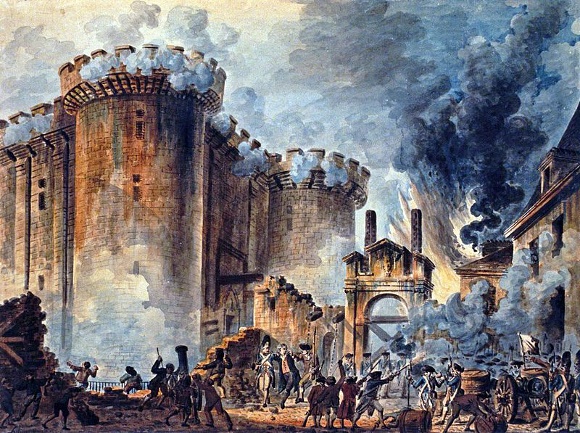A-Z: General definitions
- 39 Articles
- a Calvary
- Aaron
- Aaron's Rod
- Abaddon
- Abbess
- Abbey
- Abbot
- Abdication
- Abel
- Abolition
- Abolitionism
- Abolitionist
- Abomination of desolation
- Abraham
- Abraham Lincoln
- Absalom
- Absolution
- Absolve
- Abstinence
- Abstruse
- Absurdist
- Abyss
- Academy
- Accent
- Achan
- Acheron
- Achilles
- Acolyte
- Acoustic
- Acoustics
- Act
- Act of Union
- Actaeon
- Active Life
- Active verb
- Active Voice
- Acts
- Adam
- Adjective
- Adjectives - comparatives and superlatives
- Adjectives - predicative position
- Adolf Hitler
- Adonian
- Adonis
- Adultery
- Advent
- Adverb
- Adverbs - temporal adverbs
- Aegeus
Page: 1 2 3 4 5 ... 35 36 37 38 39 ... 70 71 72 73 74 Next »
A-Z: General definitions: French Revolution
Definition
The French Revolution began in the summer of 1789 with fall of the Bastille, and led to the overthrow of the ancien r'gime, the old monarchical and aristocratic order that ruled over a large and increasingly impoverished peasantry. Many of the leaders of the Revolution were middle-class intellectuals inspired by the radical ideas of eighteenth-century political philosophers and encouraged by the success of the American revolution of 1776. The Revolution went through a number of phases, as different groups and individuals struggled for power, and the country fought off external aggression from Prussia and Austria. The monarchy was formally abolished in 1792 and in 1793 both King Louis XVI and his queen, Marie-Antoinette were executed. There followed a period, known as the 'Reign of Terror', during which many people, both aristocrats and prominent figures in the Revolution, were executed, including Robespierre, architect of the Terror. Some calmer years followed, bolstered by the military successes of Napoleon Bonaparte, but internal disputes, increasing anarchy in the countryside, serious pro-royalist uprising and some military defeats created a power vacuum that allowed Napoleon to seize control in 1799.
